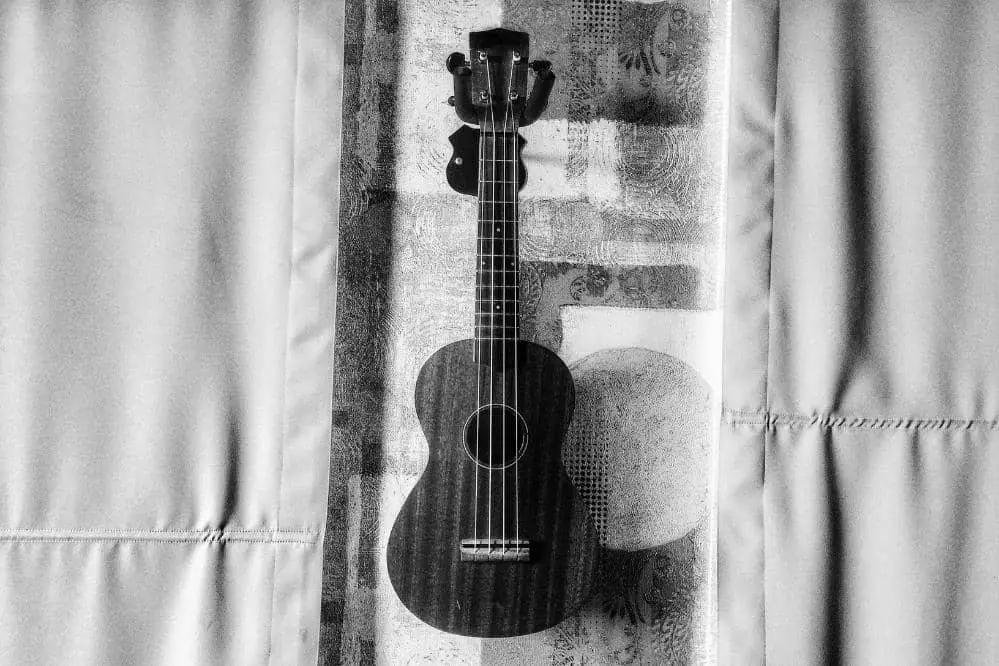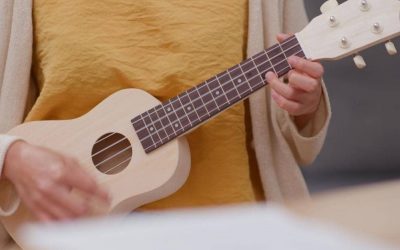Getting a ukulele can be a very fulfilling experience especially if you get a great deal on it and some of the best deals are available in the used market. However, these used ukuleles do come with a few caveats. They usually aren’t subjected to the same level of quality control as a brand new instrument from a reputed brand. They also do not come with a warranty that would cover any defects. So, you will need to look out for a few things when buying a used ukulele and we will cover each one of them today. However, before that, we would like to offer one piece of advice.
Always Buy It In-Person
It might seem very convenient to go online and look for a used ukulele. However, a lot of the things you need to look for in a used ukulele can only be done in person. There are countless accounts of people trusting someone online and getting an instrument that is nothing like what was promised. Buying something online would also mean that shipping will be involved. Even if the ukulele is good, it can get damaged in shipping. After all, in most cases it is a person shipping it to you instead of a brand that knows how to ship musical instruments. So, save yourself all this hassle and only go for those options in which you can physically inspect the instrument before parting with your money. If you really must buy online then do so from a trusted source like a store with a verified physical address that offers a warranty on their used products.
Let us now look at the things you need to look for when buying a used ukulele
Make Sure It Is Has All The Strings And Is Tuned Up
This is extremely crucial. Insist on having the ukulele stringed up and tuned. Some of the worst defects will only become apparent when the strings are attached and tuned properly. Once the strings are on, play around for a bit and keep checking the tuning. This will help you gauge the stability of the tuning pegs. Once you are satisfied with the tuning stability, it is time for the next area of scrutiny.
Look For Major Physical Defects
What we mean by “major” is any sort of defect that massively affects the playability of the instrument. Start by inquiring about any repairs the ukulele might have received in the past. Even though a repaired ukulele could still turn out to be a good deal, it has a higher chance of not being in playing shape due to an improper repair. Look closely to see if the neck, headstock, bridge, and body have been repaired in the past. This is important because these can affect both the sound and the playability of the ukulele – two of the most important aspects of any musical instrument. If you see that the repair is improper, in other words, it looks like a hasty job or has deformed the ukulele, then steer clear of it.
Even if a ukulele hasn’t undergone any repairs, it could still have a major defect. Make sure that the neck isn’t warped or bowed. Hold the ukulele vertically and look down the fretboard from the top. If you see any major warping or bowing, it means that either the ukulele is unplayable or it plays poorly. Also, ensure that the tuning pegs aren’t very loose causing the ukulele to get detuned very easily. Dead strings and fret buzz on all the strings also belong in this category. Flaws like these can sometimes be repaired, but they are neither worth the hassle nor the cost.
Look For Minor Defects
These are things that can be fixed without costing a lot of money and they do not necessarily alter the instrument to the point where it can never be completely fixed. This can include a slight bow in the neck, a string nut that isn’t properly filed, or tuning pegs that don’t turn well but manage to stay in tune. Basically, these are defects that can be fixed with a minor setup. If you have more than one option in hand then go for the one with little to no minor defects.
Look For Cosmetic Defects
It is natural for any instrument to start to show signs of wear and tear with time. These include scratches, dings, dents, chipped paint, and general wear and tear. These usually do not affect the sound or playability but they are still important. As much as we hate to admit it, aesthetics do play a role in how well we connect with a musical instrument. The better an instrument is in your eyes, the likelier you are to play it. Countless instruments around the world are gathering dust because their owners do not have this connection. So, make sure that you are aware of every single minor defect and buy the instrument only if none of them bother you.
Check Playability
This is perhaps the most important aspect of gauging the worth of a used instrument. Play the ukulele and see how it feels in your hand. Is the action too high or too low? Is there fret buzz? If yes, then how severe is it? Most importantly, does the ukulele sound good to you? If you do not feel a connection with the ukulele or if it does not allow you to play freely, then it is not the instrument for you.
Be Aware Of The Market Value
Often, sellers will hype their products up to get a higher price, and people selling used ukuleles are no different. Do research beforehand and find out what a new ukulele of the same make or model goes for. A used version should go for no more than 30 percent of that in most cases. Don’t pay more than you have to. Also, don’t shy away from bargaining especially if the ukulele will need additional work to get it back to a playable condition.
Final thoughts!
If you do not know how to play the ukulele, then make sure to take someone with you who does know how to play. This is very important as only someone who knows how to play the ukulele will be able to properly scrutinize it and decide if any defect is minor or major. Every used instrument will have some level of wear and tear and while you will be tempted to buy the first used ukulele you check out, try to avoid the need for repairs. Check as many used ukuleles as possible and you will eventually come across one at a great price that has been properly taken care of and one you can start playing immediately without having to get any sort of work done on it.




